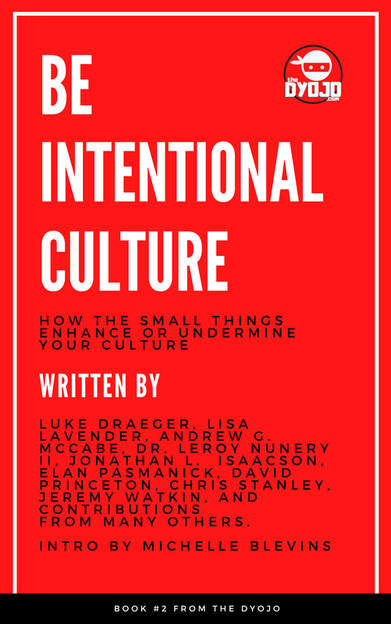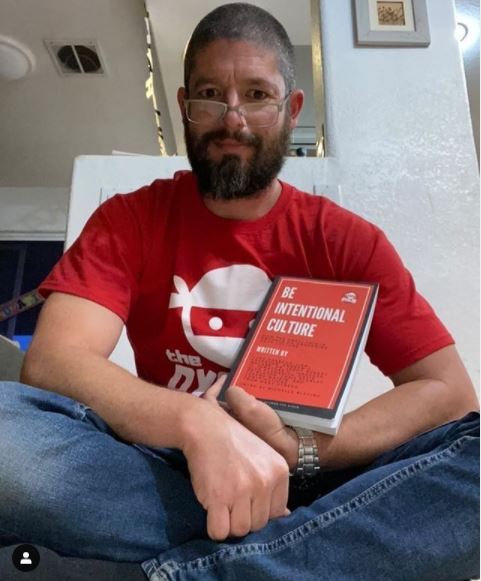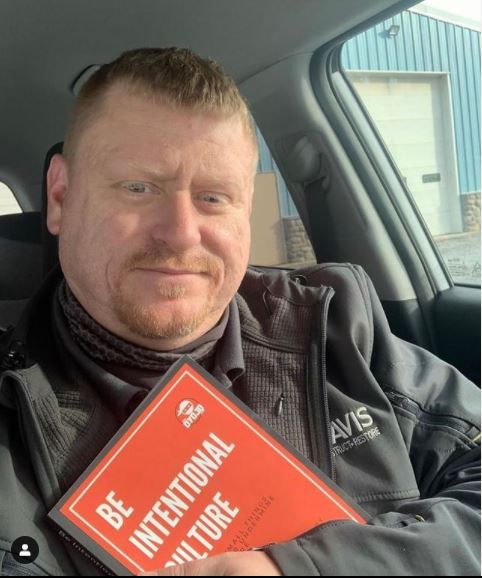Be Intentional: Culture
How the Small Things Enhance
or Undermine Your Culture
Workplace Culture Book
Be Intentional: Culture
Introduction by:
Michelle Blevins
Authors:
Lisa Lavender
Andrew G McCabe
Jeremy Watkin
Dr. Leroy Nunery II
David Princeton
Luke Draeger
Jonathan L. Isaacson
Chris Stanley
Elan Pasmanick
Publisher:
The DYOJO
Editors:
Jonathan L. Isaacson and Tiffany Acuff
Introduction by:
Michelle Blevins
Authors:
Lisa Lavender
Andrew G McCabe
Jeremy Watkin
Dr. Leroy Nunery II
David Princeton
Luke Draeger
Jonathan L. Isaacson
Chris Stanley
Elan Pasmanick
Publisher:
The DYOJO
Editors:
Jonathan L. Isaacson and Tiffany Acuff
How do the small things that you do contribute to enhancing or undermining your culture?
Featuring a poem on culture by Elan "Born to Repair" Pasmanick
The second book from The DYOJO Publications will be a collaborative effort with leaders in various industries sharing their experiences developing thriving cultures.
In business, the question with regards to culture is not whether your organization has a culture. The question you should be asking is whether your culture has evolved by chance or because you have been intentional in developing it.
If your goal is to have a healthy and thriving team, culture is the means through which you care for your organization. If you can identify, build, and staff around a culture that enhances your values, then your combined efforts will have greater focus and potency. The development of a culture becomes, through the process, a means of attracting, fostering, and retaining good team members.
In short, take care of the culture because the culture is what cares for your people.
If you want a better culture, the first step is to STOP doing those things that are undermining your development. This alone will help your growth. You accelerate this reduction of dysfunction by STARTING to identify and act upon those habits that enhance your culture. Applying both the stop and the start and you will soon be making noticeable advances towards your goals. We know bad culture when we see it, yet it may not always lend itself to clear definitions.
Therefore, developing, adapting, and caring for your culture is vital to your vitality as an organization. Your input of time, effort, and resources towards developing an intentional culture is directly linked to achieving optimal business outputs. As we continue to dig into this subject matter, the question we are asking is: What are some of the small things that have helped to enhance or undermine culture in the experiences of our talented group of authors?
Featuring a poem on culture by Elan "Born to Repair" Pasmanick
The second book from The DYOJO Publications will be a collaborative effort with leaders in various industries sharing their experiences developing thriving cultures.
In business, the question with regards to culture is not whether your organization has a culture. The question you should be asking is whether your culture has evolved by chance or because you have been intentional in developing it.
If your goal is to have a healthy and thriving team, culture is the means through which you care for your organization. If you can identify, build, and staff around a culture that enhances your values, then your combined efforts will have greater focus and potency. The development of a culture becomes, through the process, a means of attracting, fostering, and retaining good team members.
In short, take care of the culture because the culture is what cares for your people.
If you want a better culture, the first step is to STOP doing those things that are undermining your development. This alone will help your growth. You accelerate this reduction of dysfunction by STARTING to identify and act upon those habits that enhance your culture. Applying both the stop and the start and you will soon be making noticeable advances towards your goals. We know bad culture when we see it, yet it may not always lend itself to clear definitions.
- Taking care of your culture is critical to taking care of your people.
- Taking care of your people is essential to taking care of your customers.
- Taking care of your customers is the foundation of a sustainable business.
Therefore, developing, adapting, and caring for your culture is vital to your vitality as an organization. Your input of time, effort, and resources towards developing an intentional culture is directly linked to achieving optimal business outputs. As we continue to dig into this subject matter, the question we are asking is: What are some of the small things that have helped to enhance or undermine culture in the experiences of our talented group of authors?





